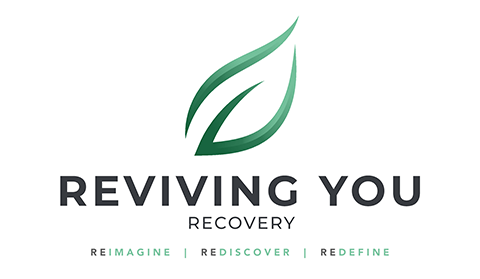Finding the Line Between Positive Emotions and Toxic Positivity

When a client is struggling with addiction, it is easy for them to feel down about life and the challenges they are experiencing. Being stuck in negative emotions, however, can also mean being trapped in a cycle of addiction. Connecting with positive emotions has many benefits. It can help a client to reconnect with their life, find meaning, and feel motivated to make changes. However, positive can become harmful. Toxic positivity describes how being positive while ignoring other emotions has damaging ramifications in an individual’s life. Therefore, treatment at Reviving You Recovery helps the client to be honest while helping them reconnect with themselves and their life.
Value of Positive Emotions in Recovery
Struggling with any kind of disease often comes with many negative emotions, including sadness, anger, and shame. While these emotions are understandable, they can also keep clients from using substances as a way to manage the emotions that they are experiencing.
Fortunately, connecting with positive emotions can help. Connecting with emotions such as love, gratitude, and joy can serve as a way for clients to take steps toward a different life. These positive emotions fill a person with light and are important on their path to transforming their life, healing, and reconnecting with life. This includes connecting with loved ones and reconnecting with purpose in life. They serve as a way to connect, which is both refreshing and healing after the isolation brought by addiction.
Positive Emotions vs. Toxic Positivity
While positive emotions are very powerful and important in recovery, there is such a thing as toxic positivity. Experiencing and connecting with positive emotions is very different from toxic positivity. This is because feeling positive emotions does not mean denying other emotions.
Toxic positivity is the process of forcing positive emotions as a way to suppress or ignore negative feelings. This might look like trying to “look on the bright side” of a situation instead of admitting that the situation is not good. However, it may also look like denying anger, sadness, or grief.
When a client is engaging in toxic positivity, they are pretending. It is common to think of pretending to others. However, it can also be how a person relates to themselves. Internally ignoring feelings is harmful and results in a lack of true connection with a person’s self, their life, and their community.
Get Your Questions Answered Now
Accepting Reality in Treatment
One of the primary steps of healing from addiction is to be honest. Being honest in treatment and recovery is extremely valuable. It helps clients to see the challenges that they are facing both in treatment and after. In recovery, honestly helps a person to address challenges as they arise, which prevents them from taking small steps toward using drugs or alcohol again in the future.
However, accepting reality in treatment is difficult. There are many phases of accepting reality. At Reviving You Recovery, clients are supported through each one. The first phase is admitting the challenges they are facing regarding addiction. Then, they will need to dive deep to understand deep-rooted issues that are related to these challenges. Finally, a client will need to accept that recovery is a long-term process that they will continue to work on for the rest of their life.
Accepting reality may seem like an impossible feat for many clients. However, with support and guidance, acceptance comes within the natural progression of healing. As clients take one step forward, they learn more about themselves and their reality and learn to be honest as they reconnect.

Importance of Steering Clear of Toxic Positivity
There are many parts of treatment and recovery where toxic positivity can pop up. At first, it can feel and seem like a method for a person to stay motivated and keep moving toward healing. However, as a client moves along through treatment, they will begin to see the value of honesty.
Being honest, and steering away from toxic positivity gives a client the opportunity to address their issues. These issues may be related to their past history, behaviors, or emotions. Regardless of the specifics, honesty helps clients see what the issues are and how they interact with their continued challenges with addiction. It is only when they are able to see these issues that a person has a chance to discover ways that they can make changes and address them in their life.
When a client connects with themselves and others, their recovery greatly improves. It helps clients to feel purpose, joy, and community. However, none of these are possible when a person is engaging in toxic positivity. This is because pretending they are okay drives a wedge between connections. When clients are honest with themselves and others, they can engage in honest and authentic relationships. These help to aid in supporting recovery and help to bring true, not pretend, joy and happiness into a person’s life.
Being positive while in recovery is incredibly valuable for clients. However, honesty about a situation is also important. At Reviving You Recovery, we believe that engaging in positive emotions such as gratitude and joy is extremely valuable in recovery. We also understand that these emotions need to accompany honesty. Therefore, we help clients to accept their reality as they learn to be honest with themselves and learn to practice positive emotions in a way that supports them on their path to healing from addiction. To learn more about our treatment center and how we incorporate positivity in treatment that supports a client’s long-term recovery, call us today at (951) 723-7598.
We Accept Most Insurances
We are in network with:









We know insurance coverage can be a source of uncertainty for people. We make sure you have all the information necessary. The great news is health insurance can potentially cover the total treatment costs. If you don't have insurance, we offer cash payment options for our treatment programs and are committed to working with clients regardless of financial situations.
